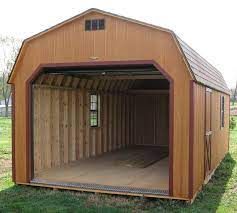Moving to a new home is never easy, especially if you’re moving to another state. Not only do you have to take the time to pack up all of your belongings and relocate them to a new location hundreds of miles away, but you’ll have to start a new life in what is mostly unfamiliar territory.
Unless you happen to live an incredibly minimalist lifestyle, a long-distance move across the country is going to take a lot of planning. While you can’t really plan too much for such a big change in your life, there are certain tips that everyone should follow if they want their move to another state to be a successful one.
Research Your New Home
While you’re packing up your belongings and researching long-distance movers, take some time to learn more about your future hometown. You should at the very least learn how much it will cost to live in your new city so you can budget for it, but you should also take some time to learn about the crime rate with sites such as NeighborhoodScout, research the best schools in the area if you have children, and find out what it’s like to commute in the area. You can even take some time to learn about fun activities and restaurants if you like to go out. The best way to do this is to plan a trip to the neighborhood before you move, but there are plenty of resources that can help you get a feel for the area if you can’t visit it first. We’ve already covered NeighborhoodScout, but you can also check GreatSchools.org if you want to learn about local schools or even Google Street View if you want a better idea of what your new neighborhood will look like.
Budget Accordingly
Moving to a new home is a significant financial commitment. You can expect to pay between $800 and $2,150 when moving into a one-bedroom home in another state. If you need a larger home for your family, you can expect to pay even more. You also need to cover the costs of setting up new utilities, WiFi, hiring a moving company, and either gas or airfare depending on whether you’re going to drive or fly to your new home. It adds up quickly, and you can easily break the bank and end up broke if you’re not careful.
Part of your research into your new home should include the cost of living, so you should already have an idea of how much money you’ll need once you’re moved in. As you’re setting aside money for living expenses, take some time to figure out how much money you’ll need for the actual move. This could take months, so start planning as soon as you decide you’re going to relocate. If you’re not sure if you’re going to move, plan ahead anyway and start saving money. It’s always better to have a moving budget and not need it than to need a moving budget and not have it.
Start Packing Early
Whether you’re moving a few blocks away or across the country, it’s always best to start packing up early. You probably won’t be able to pack up larger furniture until the day of your move, but you can start packing smaller items and putting them into temporary storage weeks in advance. This can include clothes you don’t wear regularly, extra kitchen utensils, smaller electronics, and anything you won’t need before moving day. Pack all of your belongings carefully, label all of your boxes, and store them appropriately. A good moving and storage company can assist you with this if need be, so don’t hesitate to ask for assistance. Once it gets closer to moving day, you can focus on the larger items such as furniture, and larger electronics such as TVs. Ideally, most of your belongings should be packed and ready to go by the time the moving vans arrive.
Conclusion
Moving anywhere is a stressful process, and it’s even more stressful when you’re moving to a new state. However, there are ways to make it easier. Keep these tips in mind, plan ahead as much as you can, and keep a cool head. It’s not going to be as hard as you think it will be.











